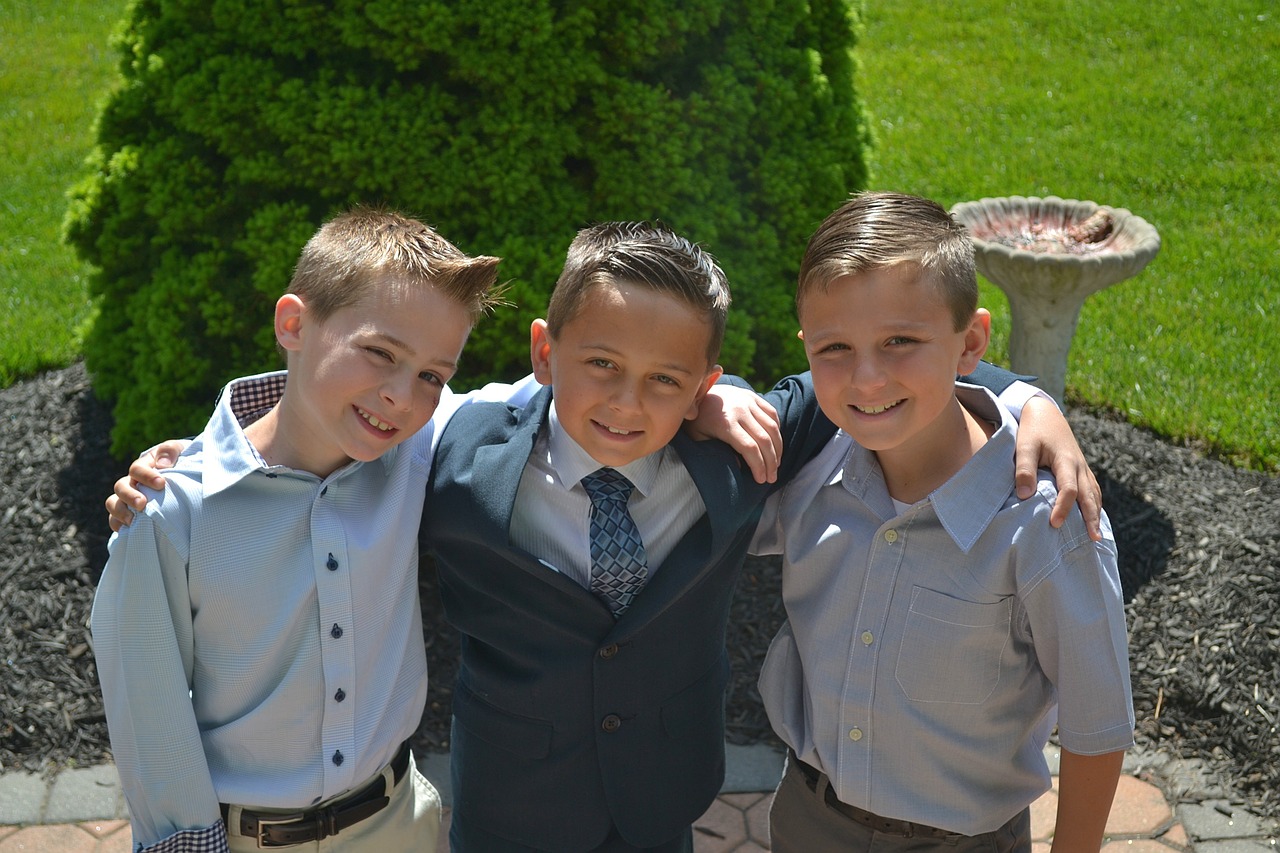Parenthood — a blissful journey where every day is sunshine, rainbows, and children telling you nothing but the absolute truth. I mean, come on, kids lying? That’s as likely as them wanting candy for dinner or thinking that flushing your phone down the toilet is a great magic trick. But on the off chance that your precious darling does occasionally stretch the truth, fear not! Here’s the ultimate guide to handling those rare moments of “creative truth-telling” with grace, humor, and just a smidge of sarcasm.
1. Deep Breaths – It’s Not Personal (Mostly)
First of all, let’s get one thing straight: when your child tells a “creative truth,” it’s not because they’ve suddenly turned into a mini Machiavellian mastermind plotting world domination (though the jury’s still out on teenagers). Kids lie for various reasons: fear of getting in trouble, seeking attention, or just plain old experimentation. Breathe. Before turning into an interrogator, remember the innocence behind most little white lies.
2. Play Detective, But Skip the Magnifying Glass
When you suspect your little one might not be giving you the full story (like when the vase is broken and there’s a soccer ball suspiciously close), instead of jumping to conclusions, play detective. Ask open-ended questions, give them a chance to come clean. You might say, “Wow, that vase and the soccer ball seem to have had a little disagreement. What happened?” The aim is not to corner them, but to teach them the value of honesty.
3. Embrace Your Inner Oscar-Worthy Actor
You’ll need some grade-A acting skills for this one. When your child regales you with their version of events that’s more fantasy than fact, put on your best surprised face, and exclaim, “Really? The dog colored on the walls? Wow, we should sign him up for art classes!” Sarcasm? Yes. But also a playful way to let your child know you’re onto them without directly accusing them.
4. Role-Playing Isn’t Just for Theater Geeks
When dealing with repeated “creative truth-telling,” it might be a good idea to whip out the ol’ role-playing card. Kids learn best by doing. So, gather up your child and maybe a few of their stuffed animals, and reenact scenarios where honesty could have been the best policy. Mr. Teddy can be the mischievous one while Mrs. Bunny plays the forgiving parent. Not only is this a subtle way to impart the importance of honesty, but it also promises a good chuckle.
5. Make Honesty More Appealing Than Their Wildest Tales
Now, this doesn’t mean offering a trip to Disneyland every time they admit to taking a cookie from the cookie jar. Instead, praise their courage when they come clean. A simple, “I appreciate you telling me the truth. It shows you’re growing up,” can do wonders. Positive reinforcement always trumps fear-based tactics.
6. Make Truth Time a Daily Ritual
Let’s face it, our little Picassos of pretense often weave these intricate tales because they desperately crave attention. So, why not turn the tables and establish a daily ‘Truth Time’? During this sacred ritual, everyone shares one true thing about their day, no matter how mundane. “Today, I ate my peas without flinging them at my sister.” Celebrate these miniature confessions. Over time, you’ll find your child yearning for this moment of unadulterated honesty.
7. Books – Because Who Can Resist a Good Story?
There are tons of children’s books out there that discuss the consequences of lying in fun and imaginative ways. Dive into stories like “The Boy Who Cried Wolf” or “Ruthie and the (Not So) Teeny Tiny Lie.” Not only do you get quality reading time, but you also subtly drop truth bombs into their young minds.
8. Recognize the Difference Between Fantasy and Fibs
Ah, the age-old conundrum. Is your child lying, or just flexing their imagination muscles? If your four-year-old claims to have ridden a unicorn to school, perhaps it’s best to appreciate their imaginative spirit rather than label it as a lie. Respond with, “Wow, that sounds like a magical journey! Tell me more.” There’s a fine line between creativity and deceit. Know when to nurture and when to nudge towards truth.
9. Offer Amnesty Hours
Every once in a while, declare an ‘Amnesty Hour’ — a safe period when kids can confess their misdeeds without facing any consequences. This practice not only encourages honesty but also helps you understand the pressures and challenges your child faces. Just remember to keep the lines of communication open and judgment-free.
10. Set the Example, Captain Honesty!
And finally, the most obvious tip of them all: BE HONEST. Your kids are watching you like hawks, ready to mimic your every move. So if they catch you telling Aunt Gertrude you loved her hand-knitted, polka-dotted sweater (when in reality, it’s the stuff of nightmares), they’re likely to think, “Well, if mom/dad can fib about that, so can I.” Always strive to be the paragon of truth, even when it’s tough.
In conclusion, the world of “creative truth-telling” is a complex one. But with a blend of humor, understanding, and a dash of cunning, you can navigate the turbulent waters of childlike fibs. Remember, behind every tall tale is a child trying to express themselves, gain your attention, or simply figure out the world around them. So chuckle, embrace the challenge, and guide them lovingly toward a world where honesty isn’t just the best policy, it’s the funniest one too.
Pro Tips for Navigating the Whimsical World of Whoppers:
- The ‘No Big Deal’ Approach
Sometimes, it’s best to downplay the lie rather than blowing it out of proportion. If your child senses that every small untruth will lead to a major drama, they might lie out of sheer panic. A calm acknowledgment can sometimes be more effective than a full-blown lecture.
- Use Tech as an Ally
In this age of technology, there are numerous apps and games designed to teach kids about honesty in fun and interactive ways. A weekly family game night featuring one of these can subtly instill the virtues of truthfulness.
- Storytelling Sessions
Encourage your child to differentiate between fiction and reality by designating storytelling times. Here, they can weave any tale they want, fostering creativity while helping them understand the boundary between fact and fiction in daily life.
- The Honesty Jar
Introduce an ‘Honesty Jar’ in your house. Every time someone tells the truth in a difficult situation, they get to put a coin or a colorful bead in it. Once it’s full, the family can use it for a treat. This visual representation can motivate children to be honest.
- Revisit & Reflect
If your child has spun a particularly imaginative yarn, revisit it after a few days when the dust has settled. Discuss the story with a sense of humor, pondering how it could’ve been told with honesty. This reflection can offer insights without making your child defensive.
- Emphasize Repair, Not Blame
Shift the focus from blame to repair. Instead of dwelling on the lie, discuss ways to make amends or set things right. This approach teaches kids about responsibility and the idea that mistakes can be fixed.
- Open-Door Policy
Let your kids know they can talk to you about anything, anytime. If they’re assured of a safe, non-judgmental space, they’re less likely to resort to lying.
- Teach Them About Consequences
Not the punitive kind, but the natural ones. If they lie about doing their homework and then get a low score on a test, instead of an “I told you so” approach, gently point out the cause and effect.
- Avoid Trap Questions
If you already know they’ve had two cookies instead of one, don’t ask, “How many cookies did you have?” It sets them up for failure. Be direct and offer a way for them to be honest without feeling cornered.
- Celebrate Honesty
Got a whole day without any ‘creative truths’? Celebrate it! Maybe not with fireworks, but a simple acknowledgment or a sticker on a chart can mean the world to them.
FAQs: Navigating Your Child’s Creative Truth-Telling
Kids lie for a variety of reasons, just like adults do. Common reasons include avoiding trouble, seeking attention, or simply experimenting with their understanding of reality versus fiction. Remember, most of the time, these lies aren’t malicious — they’re just a part of growing up.
It might surprise you, but kids can start lying as early as age two or three. It’s around this age that they begin to grasp that you aren’t privy to their inner thoughts. By around age four, they get even craftier with their tall tales.
Context is key. If your child claims they flew to the moon during playtime, that’s imagination. However, if they’re denying something they did wrong even when evidence suggests otherwise, that leans more towards lying.
Punishment might deter lying in the short term, but it doesn’t address the underlying reasons. It’s often more effective to encourage open communication and understand why they felt the need to lie in the first place.
Trust is built over time. Acknowledge the lie, discuss its implications, and then move forward. Consistent positive reinforcement when they tell the truth will gradually rebuild trust.
Consistency is key. Keep reinforcing the importance of honesty. If lying persists, especially in older children, it might be beneficial to consult a child psychologist or counselor to understand any underlying issues.
While lying can be frustrating for parents, it does require cognitive skills. To lie, a child must first recognize the truth, invent a falsehood, and then be able to convincingly sell that story — all of which require a certain level of intelligence and social understanding. So, silver lining?
The old adage, “actions speak louder than words,” holds true. If you want your child to value honesty, they need to see you practicing it in your daily life, even in the small moments.
Not necessarily. Imaginary friends are a normal part of childhood for many kids. It’s their way of exploring social dynamics, creativity, and yes, sometimes shifting blame. Over time, as they mature, this behavior will likely phase out.
Absolutely! Books like “The Berenstain Bears and the Truth” and “Ruthie and the (Not So) Teeny Tiny Lie” can be great conversation starters with kids. For parents, “NurtureShock: New Thinking About Children” by Po Bronson and Ashley Merryman offers insights into various aspects of child-rearing, including lying.



